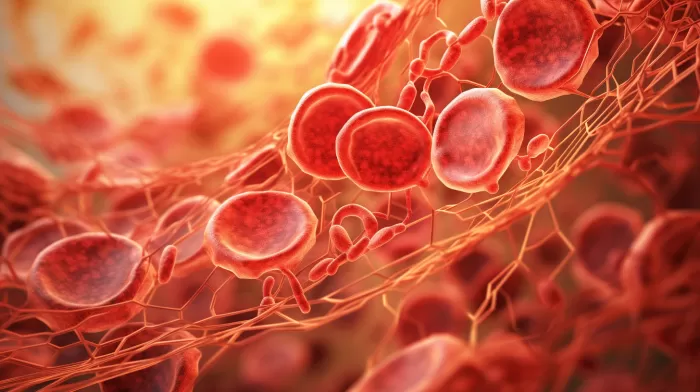Carrying extra weight around your middle as you age can have even more severe consequences than you might realize. Researchers in England have discovered a crucial link between body fat, aging, and arterial flexibility. The findings indicate that being overweight becomes increasingly detrimental to your artery function as you get older.
In a study conducted at the Medical Research Council (MRC) Clinical Sciences Centre at Imperial College, London, scientists assessed the arterial stiffness of 200 people. They found that the build-up of body fat negatively affected artery function. While the younger participants in the study still maintained vessel flexibility when overweight, those aged 50 or older exhibited significant signs of arterial dysfunction.
According to researcher Declan O’Regan, “The effects of having more fat seem to be different depending on your age. It looks like young people may be able to adapt to excess body fat, but by middle age, the cumulative exposure to years of obesity may start to cause permanent damage to the arteries.”
While the exact process by which body fat causes arterial stiffness is still unknown, some theories suggest that certain metabolic products present in the bloodstream may gradually damage the elastic fibers in our blood vessels. Gaining a better understanding of these processes could help prevent the harmful effects of obesity.
Arterial Stiffness – A Risk Factor for Cardiovascular Disease
Arterial stiffness, or a lack of flexibility in the arteries, is an important risk factor for cardiovascular diseases such as heart attacks and strokes. Stiff arteries can result in poor blood flow and increased strain on the heart, which increases the risk of cardiovascular events. As you age, it’s crucial to maintain your arterial health to reduce your risk of cardiovascular disease.
Tips for Improving Arterial Flexibility
Luckily, there are several effective lifestyle changes you can implement to help improve arterial flexibility and protect your heart:
1. Maintain a healthy weight
As demonstrated by the study, excess body fat can have a negative impact on artery function. Therefore, maintaining a healthy weight through proper diet and exercise is essential for improving arterial flexibility.
2. Incorporate aerobic exercise
Engaging in regular aerobic exercise (such as brisk walking, swimming, or bicycling) can significantly enhance your arterial health. The American Heart Association recommends at least 150 minutes per week of moderate-intensity aerobic activity or 75 minutes per week of vigorous aerobic activity (or a combination of both) for adults.
3. Consume a heart-healthy diet
A diet rich in fruits, vegetables, whole grains, lean proteins, and healthy fats provides essential nutrients to support arterial flexibility. The Mediterranean diet, in particular, has been praised for its heart-health benefits.
4. Limit sodium intake
Excessive sodium consumption can contribute to high blood pressure, a risk factor for arterial stiffness. The American Heart Association recommends consuming no more than 2,300 milligrams of sodium per day, and ideally, not exceeding 1,500 milligrams.
5. Manage stress
Long-term stress can have a detrimental impact on overall heart health, leading to high blood pressure and arterial stiffness. Implementing stress management techniques (such as yoga, meditation, or deep breathing exercises) into your daily routine can help keep stress at bay and promote arterial flexibility.
6. Stop smoking and limit alcohol consumption
Smoking and excessive drinking are well-known risk factors for heart disease. Quitting smoking and moderating alcohol intake can significantly improve arterial health.
The Importance of Arterial Health
In conclusion, maintaining arterial flexibility is crucial for overall heart health, especially as you age. By implementing these lifestyle changes and prioritizing heart-healthy habits, you can help reduce your risk of experiencing cardiovascular events and promote a healthier, more active lifestyle well beyond the age of 50. So take charge today and give your arteries (and heart) the care they deserve!



